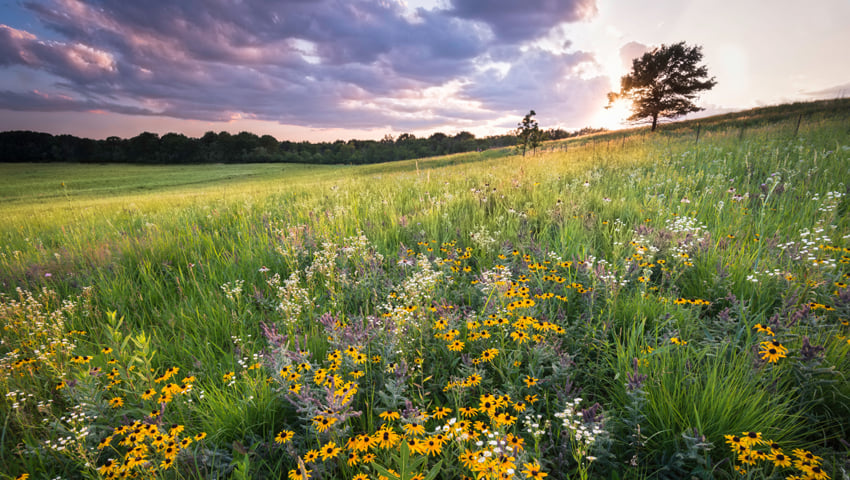As farmer protests around Europe spread to the UK, the NFFN’s CEO Martin Lines reflects on what’s at stake.
From Paris to Berlin, Bucharest to Brussels, farmers are angrily taking to the streets. The reasons for this are multifaceted, including concerns around the sustainability of farm incomes, the ramifications of having to meet more stringent environmental regulations, the impact of free trade agreements and how the market functions. What’s clear is a growing sense of discontent with the uncertainty, instability and inequity which have become synonymous with our current food and farming system.
Although the reasons for the protests are varied, complex and, in many cases, country-specific, staunch opposition to the rollout of climate and nature policies has frequently been touted as the dominant driving force. While the truth is more nuanced, this compelling, pervasive narrative has been a major contributor to the recent rowback of key European climate and nature commitments. Alongside the worrying erosion of environmental ambition, external forces are seizing an opportunity to manipulate farmer frustration for their own gain as European elections draw close.
Inevitably, this has become a talking point in the UK. Our newspapers and newsfeeds question if it’s time our farmers declare enough is enough? Dealing with the maelstrom of a ruthless supply chain, rising costs, unfair trade and rapidly changing farm payments, I can understand how the storm has brewed. But I don’t believe these calls to action represent a viable solution to our problems.
In recognising that environmental reforms will play an integral role in farming in the future, let’s work proactively to make sure they work for farmers on the ground.
Does it serve our long-term interests to rail in anger against a challenging yet necessary farming transition? Will we risk our social licence to farm and, with it, our long-term funding prospects if we disrupt the lives of the public? Will we undermine future resilience if we derail plans to support more sustainable production?
This does not mean we should do nothing. We need urgent, systemic and structural change if we want to help farmers navigate the challenges of the 21st century. The case for change must be made clearly, constructively and with a focus on the solutions needed to secure a genuinely just transition.
We need to show what farming can do when it’s properly supported rather than focusing only on what we’re against. In recognising that environmental reforms will play an integral role in farming in the future, let’s work proactively to make sure they work for farmers on the ground. Let’s bring the public with us to secure more fair and transparent supply chains which pay their fair share in this challenging journey. We need everyone with us as we strive for a farming system that works for farmers, citizens and the environment. A unifying mandate for change can achieve much more than knee-jerk responses to anger, dissent and division.
